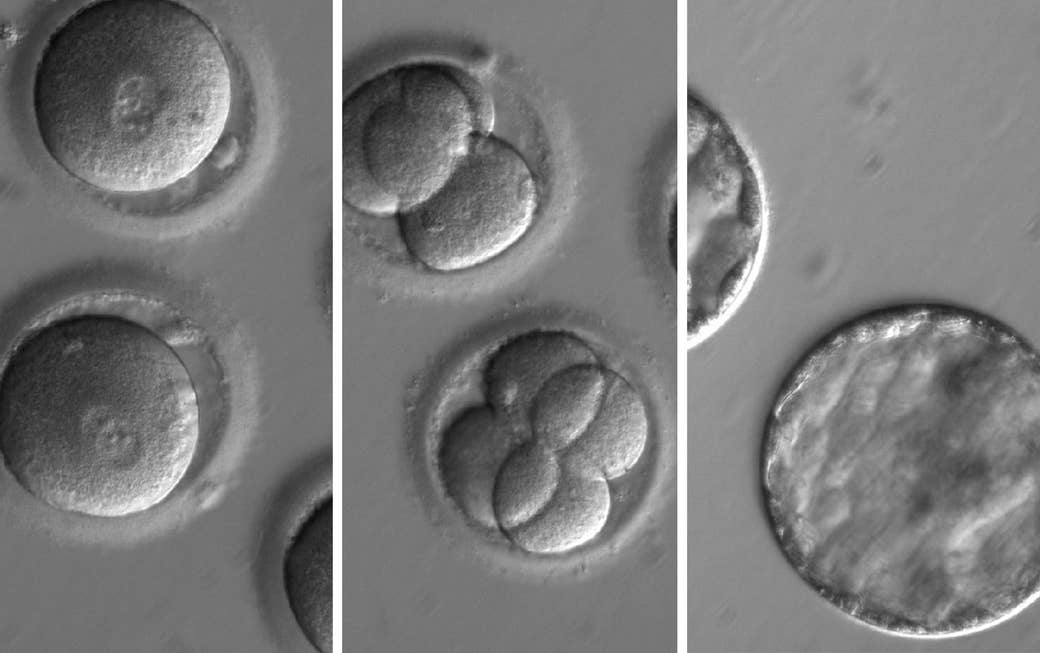
Researchers have erased a genetic glitch that causes heart defects in dozens of human embryos with surprising success, fixing the problem 72% of the time. It is the first study to use the controversial CRISPR gene-editing technology in a large number of normal human embryos.
The hottest invention in biology, CRISPR allows scientists to cut out and replace genes. About 40 nations, including the US and the UK, effectively prohibit or outlaw using the method to genetically engineer babies.
But the new study, published in Nature, suggests that CRISPR might work as an aid to fertility clinic screening for dangerous inherited diseases, relying on a previously unknown ability of human embryos to swiftly repair their genes.
“I’m very surprised,” study coauthor Jin-Soo Kim of Seoul National University said in a briefing for reporters on the already widely discussed and speculated-about study, a collaboration between US, Chinese, and South Korean researchers.
Kim and his colleagues injected the CRISPR gene fix into dozens of donor eggs, alongside sperm from a man who is a carrier for a heart defect linked to cardiomyopathy. The genetic defect corrected in the study is the leading cause of sudden heart attacks in young people, carried by about 1 in 500. If you inherit the glitch, you have a 50% chance of passing it along to your children.
Unlike past experiments that attempted CRISPR days after embryos had developed, this one did it at the time of fertilization. And it worked in 72% of the embryos, replacing the defective gene with a healthy one. In those, the gene-editing technique replaced the gene in every one of the embryo’s cells, preventing the “mosaicism” — when some cells are fixed and others are not — that happened in previous studies. And CRISPR didn’t target any other genes — collateral damage that plagued similar Chinese studies in 2015.
Even in the 28% of embryos where CRISPR did not correct the defective sperm gene, it still erased it.
The biggest discovery was that the genetic defect originating in sperm was corrected not with the replacement gene that the researchers had inserted, but instead with a healthy gene from the donor egg. That suggests that the CRISPR process inadvertently triggered a powerful and unexpected form of natural DNA repair in human embryos, one not seen before in studies of mice or other creatures.
“Overall, this is a very cool and surprising result, especially that it worked as well as it did,” stem cell scientist Paul Knoepfler of the University of California, Davis, told BuzzFeed News.
“But I’m skeptical this will end up in clinical use,” Knoepfler added. Fertility clinics can already screen embryos for the 50-50 chance genetic defects like the one in the study, he noted, and then not use the defective ones in IVF procedures.
Many scientists and bioethicists fear unanticipated harms to children born this way.
The National Academy of Sciences released a report last year urging caution when using CRISPR to permanently alter inherited genes — exactly the thing done by the new study. Many scientists and bioethicists fear unanticipated harms to children born this way, which is why the study was designed to halt the embryos development early on. Until now only three published Chinese studies have tried CRISPR on human embryos, with mixed results and low efficiency.
Despite fears about the new study, “this is not the beginning of designer babies,” bioethicist Alta Charo of the University of Wisconsin told BuzzFeed News. The experiment focused only on correcting a defective gene, she noted, and only during early embryonic development.
“The researchers were very careful to halt development after a few days,” she said.
Essentially, CRISPR turned the defective paternal version of a gene into a working maternal one. But researchers disagree over whether the reverse might also be possible.
"This is actually very good, and could be very useful in these sorts of cases, but of course it’s limiting because it means that that change from the paternal version only goes one way,” developmental geneticist Robin Lovell-Badge of the Francis Crick Institute told BuzzFeed News. If the defect was in the woman’s genes instead of the man’s, then the gene editing trick uncovered by the study wouldn’t work, he said.
However, study senior author Shoukhrat Mitalipov of the Oregon Health & Science University disagreed, telling reporters at the briefing that he thought the technique would also likely swap a working paternal gene for a defective maternal one. A bigger problem would be fixing an embryo where both parents’ genes are defective, he said, but these cases are rare.
“We still have a long road ahead,” Mitalipov said, before ever doing this in a human baby. The efficiency of the process would have to be above 90%, he suggested, and more work needs to be done to absolutely show that CRISPR didn’t really cause any collateral genetic damage to the embryos.
“I think we are at a very pivotal moment with this study,” said bioethicist Marcy Darnovsky of the Center for Genetics and Society, a past critic of engineering inherited genes.
“These researchers have really taken it upon themselves to advance this technology this way without asking the rest of us if we really want to go along.”

